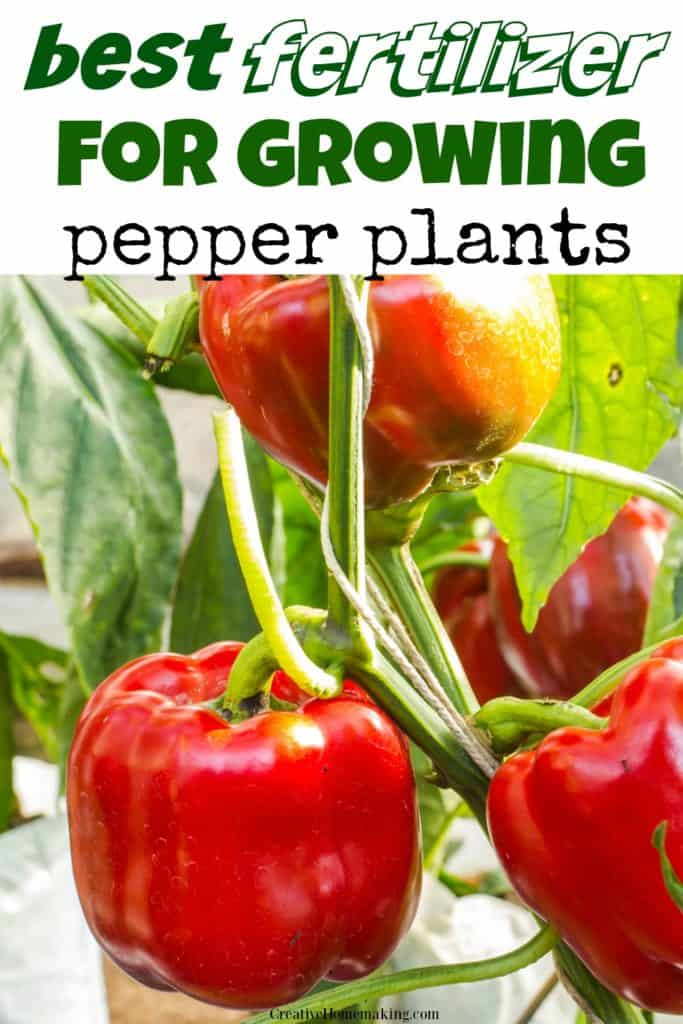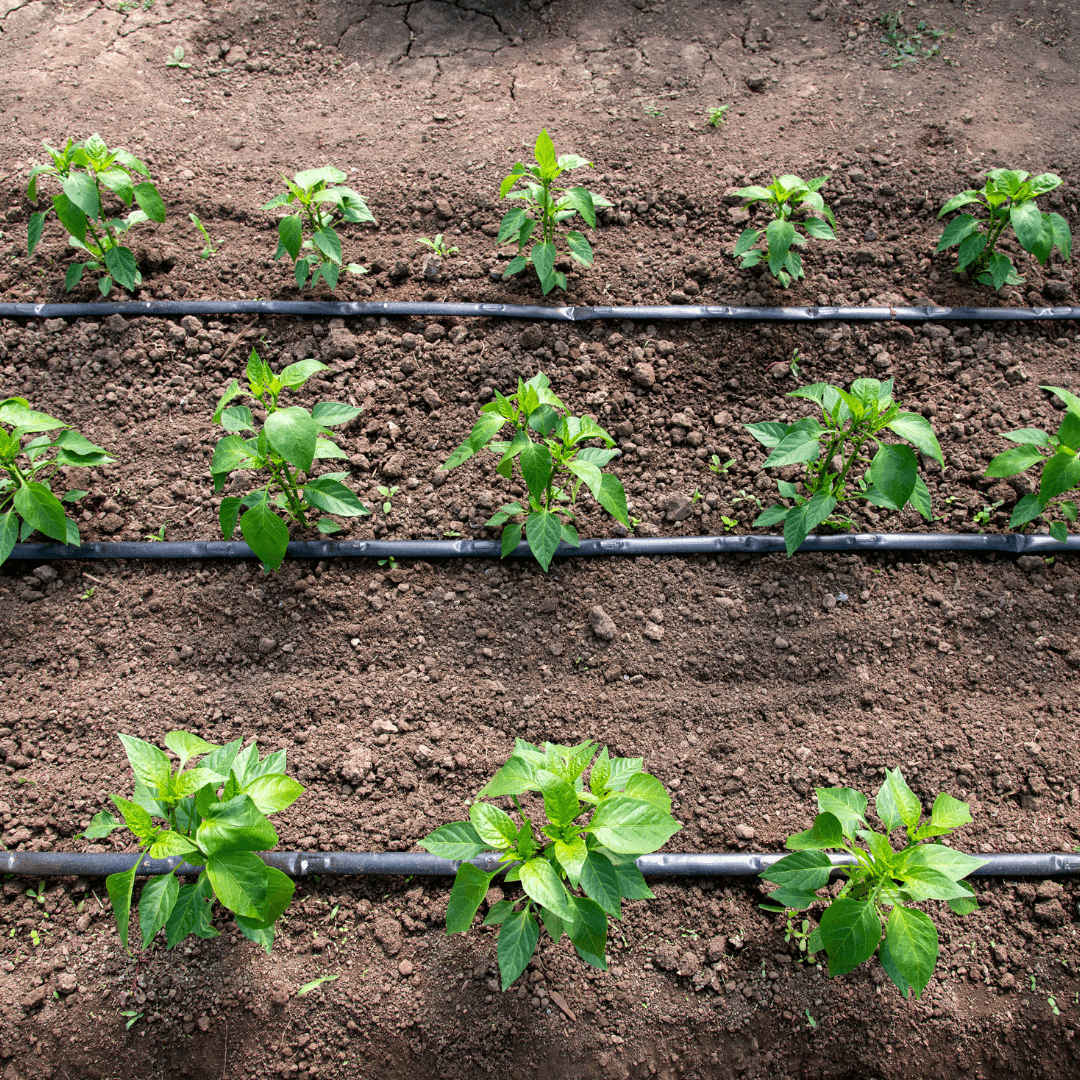Explore the Best Fertilizers for Peppers and Enhance Your Garden's Yield
Wiki Article
Organic Vs. Synthetic Fertilizers: Which Is Best for Supporting Healthy And Balanced Pepper Plants?
In the realm of supporting healthy pepper plants, the option between natural and artificial plant foods stands as a pivotal decision with significant effects. While both options aim to supply necessary nutrients to sustain plant development, the subtleties of their effect on the soil, plant health, and the environment spark an argument that echoes throughout the horticulture area. Understanding the distinct advantages and possible risks of each fertilizer type is vital for pepper farmers looking for to maximize their returns while keeping a lasting and eco-conscious method.Benefits of Organic Plant Foods
Organic plant foods supply an environmentally-friendly and sustainable approach to beneficial pepper plants, offering essential nutrients without using synthetic chemicals. These all-natural fertilizers are originated from natural resources such as compost, manure, bone meal, and seaweed, advertising soil wellness and biodiversity. Unlike synthetic plant foods, organic alternatives release nutrients gradually, making certain a well balanced and steady supply for pepper plants to grow.One considerable advantage of natural plant foods is their ability to boost soil framework and water retention. By enhancing dirt health, natural fertilizers advertise advantageous microbial task, which helps in nutrient uptake by pepper plants. In addition, organic plant foods decrease the threat of chemical run-off, securing water sources from contamination and protecting the environment.
In addition, organic fertilizers add to long-lasting dirt fertility by advertising the development of beneficial soil organisms. These organisms assist break down organic matter, releasing nutrients in a type that is conveniently obtainable to pepper plants. best fertilizers for peppers. By fostering a healthy soil community, organic fertilizers support sustainable pepper farming methods that benefit both plants and the environment
Downsides of Synthetic Fertilizers
Synthetic fertilizers, unlike their natural equivalents, posture various negative aspects when made use of to nurture pepper plants, affecting both plant health and wellness and environmental sustainability. One major drawback of synthetic plant foods is their propensity to seep nutrients from the soil rapidly. This fast leaching can result in nutrition discrepancies in the soil, causing plants to experience toxicities or deficiencies. Additionally, synthetic fertilizers can damage valuable dirt organisms, such as earthworms and helpful germs, interrupting the soil community's balance.In addition, the overuse of artificial fertilizers can add to water contamination. Excess plant foods not taken in by plants can wash away right into water bodies, leading to eutrophication, where algae blossoms deplete oxygen degrees in the water, hurting marine life. Artificial plant foods are typically acquired from non-renewable resources, such as fossil fuels, adding to carbon emissions and ecological deterioration during their production.
Nutrient Absorption Contrast
Efficient nutrient absorption plays a crucial duty in the total wellness and development of pepper plants. When comparing natural and artificial fertilizers in terms of nutrient absorption, organic plant foods have the advantage of giving a more well balanced and slow-release source of nutrients (best fertilizers for peppers). Organic plant foods consist of a variety of macro and trace elements that are not only valuable for the plants but likewise advertise healthy soil microbial task, which aids in nutrient uptake. On the other hand, artificial fertilizers commonly provide a quick launch of nutrients, which can result in leaching and drainage, leading to lower nutrient absorption prices by the plants.Additionally, organic plant foods boost soil structure and water retention capacity, allowing pepper plants to gain access to nutrients extra successfully. This improved soil high quality promotes origin advancement, allowing far better nutrient absorption. Artificial fertilizers, although originally boosting plant growth as a result of their high nutrient focus, might hinder long-term nutrient absorption by derogatory dirt health with time.
Ecological Impact Considerations

On the various other hand, artificial fertilizers, although typically more right away offered and concentrated to plants, can have destructive impacts on the environment otherwise applied effectively (best fertilizers for peppers). Their manufacturing requires high energy inputs, causing greenhouse gas emissions and contributing to environment modification. The runoff of excess artificial fertilizers can contaminate water resources, leading to eutrophication and damaging aquatic environments.
Ideal Fertilizer Practices for Peppers
When feeding pepper plants, optimizing nutrient uptake and reducing ecological influence are key factors to consider. To attain this, it is vital to comply with ideal plant food techniques tailored to the particular demands of pepper plants. One crucial practice is to carry out a dirt examination prior to applying any type of fertilizers. This test can figure out the pH degree of the dirt and identify any nutrient deficiencies, guiding you in selecting the most suitable fertilizer formulation.An additional vital technique is to feed pepper plants at the ideal time. Normally, peppers gain from receiving plant food at growing and after that again when they start to blossom. Over-fertilizing can bring about vitamins and mineral discrepancies and hurt the plants, so it is important to comply with recommended application prices.
Furthermore, selecting a balanced fertilizer with an NPK proportion that fits pepper plants' requirements is fundamental. Organic plant foods, such as compost or manure, can be excellent selections as they release nutrients slowly and enhance soil framework gradually. However, artificial plant foods can supply a quick nutrient increase when required. Ultimately, incorporating artificial and natural fertilizers Recommended Reading sensibly can help support healthy pepper plants while decreasing environmental effect.
Final Thought

Organic plant check here foods supply an environmentally-friendly and lasting approach to nourishing pepper plants, supplying essential nutrients without the use of artificial chemicals. Unlike artificial fertilizers, natural options release nutrients gradually, ensuring a consistent and well balanced supply for pepper plants to prosper.
Artificial fertilizers, in contrast to their organic equivalents, pose different negative aspects when used to nourish pepper plants, influencing both plant wellness and environmental sustainability. When contrasting natural and synthetic plant foods in terms of nutrient absorption, natural plant foods have the advantage of offering a much more well balanced and slow-release resource of nutrients.In addition, organic fertilizers improve dirt framework and water retention ability, allowing pepper plants to access nutrients much more effectively.
Report this wiki page